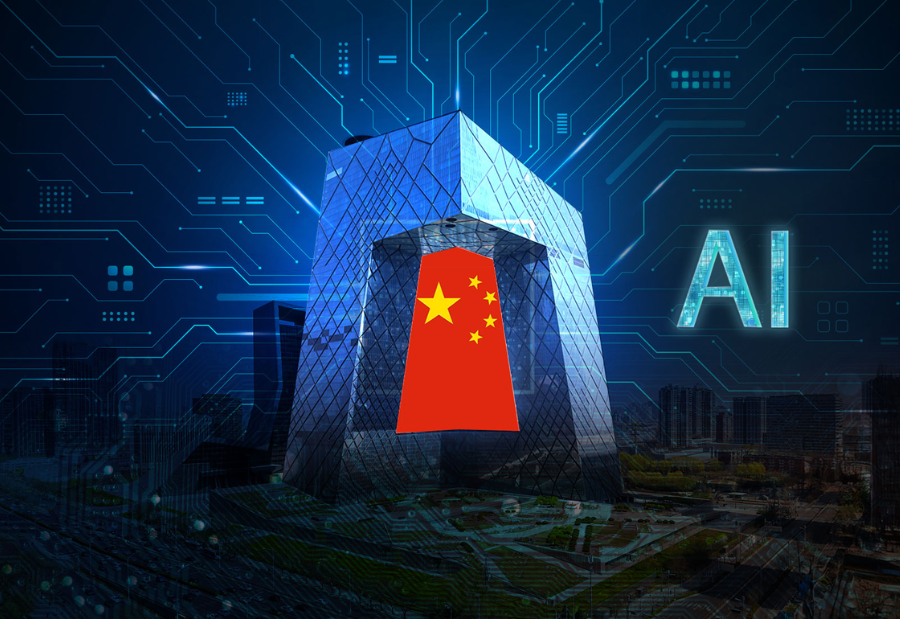China has found a fast-emerging rival to America’s Silicon Valley — Liangzhu, a quiet suburb on the edge of Hangzhou, which is quickly becoming one of the country’s key centres for artificial intelligence development.In a report by media, a typical Saturday scene in Liangzhu was described as, “…dozens of people sat in the grass around a backyard stage where aspiring founders of tech startups talked about their ideas.” Felix Tao, a former employee of Facebook and Alibaba who hosted the event, told the publication, “People come here to explore their own possibilities.
”Almost every discussion at these startup and corporate events revolves around artificial intelligence — the core technology driving China’s efforts to challenge the United States in the global tech race.Hangzhou, already famous for being the home of tech giants like Alibaba, NetEase, and surveillance technology firm Hikvision, has also seen the rise of AI powerhouse DeepSeek. The company grabbed global attention earlier this year after introducing a powerful open-source AI model, claiming it was developed at a fraction of the cost of similar Western technologies.
DeepSeek is part of what Chinese media now call the “six tigers of Hangzhou” — a group of AI and robotics companies making waves both in China and abroad. Another member, Game Science, developed Black Myth: Wukong, the first Chinese-made video game to achieve blockbuster status worldwide. Robotics company Unitree also made headlines when its robot dogs performed a coordinated dance during China’s Spring Festival Gala this year.
Hangzhou’s AI boom has been carefully planned. Over the past ten years, the government has introduced tax breaks and subsidies to attract startups. Today, hundreds of tech companies have set up base in the city. On weekends, investors and entrepreneurs from major cities like Beijing, Shanghai, and Shenzhen fly in to scout for talent — often finding themselves at informal gatherings like the one hosted by Tao.Many of the city’s coders are graduates of Zhejiang University, one of China’s top engineering schools and also the alma mater of DeepSeek’s founder.
Their skills are so sought after that when a key DeepSeek engineer moved to electronics giant Xiaomi, it became front-page news in Chinese media. Meanwhile, several engineers say they are simply waiting for their noncompete clauses with big firms like ByteDance to end so they can launch their own startups.However, Hangzhou’s tech success faces challenges.
Founders told media that the same government support that helped them grow now makes it harder to attract foreign investors. International interest in Chinese tech has dropped, especially for firms with state connections, as global concerns over national security increase.
“The dilemma is clear,” one founder said anonymously. “You either take government funding and stay focused on China, or raise enough on your own to open an office in Singapore or elsewhere. Most people can’t afford the second route.”
Another big concern is access to advanced chips that power AI models. With the U.S. placing strict export restrictions on high-performance semiconductors, Chinese companies are struggling to source processors from major firms like Nvidia.
In response, Chinese tech leaders like Huawei and Semiconductor Manufacturing International Corporation are racing to build homegrown alternatives.Though some Chinese-made chips have allowed firms like ByteDance to continue limited AI services locally, experts say it’s uncertain whether these domestic supplies can meet the growing demand — or how long it will take for China to achieve complete chip independence.
Also read: Viksit Workforce for a Viksit Bharat
Do Follow: The Mainstream formerly known as CIO News LinkedIn Account | The Mainstream formerly known as CIO News Facebook | The Mainstream formerly known as CIO News Youtube | The Mainstream formerly known as CIO News Twitter |The Mainstream formerly known as CIO News Whatsapp Channel | The Mainstream formerly known as CIO News Instagram
About us:
The Mainstream formerly known as CIO News is a premier platform dedicated to delivering latest news, updates, and insights from the tech industry. With its strong foundation of intellectual property and thought leadership, the platform is well-positioned to stay ahead of the curve and lead conversations about how technology shapes our world. From its early days as CIO News to its rebranding as The Mainstream on November 28, 2024, it has been expanding its global reach, targeting key markets in the Middle East & Africa, ASEAN, the USA, and the UK. The Mainstream is a vision to put technology at the center of every conversation, inspiring professionals and organizations to embrace the future of tech.




